You’re in search of a healthier lifestyle, one that involves taking care of your body and monitoring your progress along the way. We all know that maintaining a balanced diet and incorporating regular exercise are key components to achieving your fitness goals. But have you ever wondered how often you should step on that scale? In this article, we’ll explore the topic of weighing yourself and provide some helpful insights into finding the perfect frequency for tracking your weight.
Keeping track of your weight can be an effective tool for staying accountable and motivated on your fitness journey. However, it’s important to strike a balance between monitoring your progress and becoming obsessed with numbers. In this article, we’ll discuss the potential benefits of weighing yourself regularly, as well as the potential pitfalls to avoid. By the end, you’ll have a clear understanding of how often you should weigh yourself to maintain a healthy relationship with your body and achieve your desired outcomes. So, let’s dive right in!
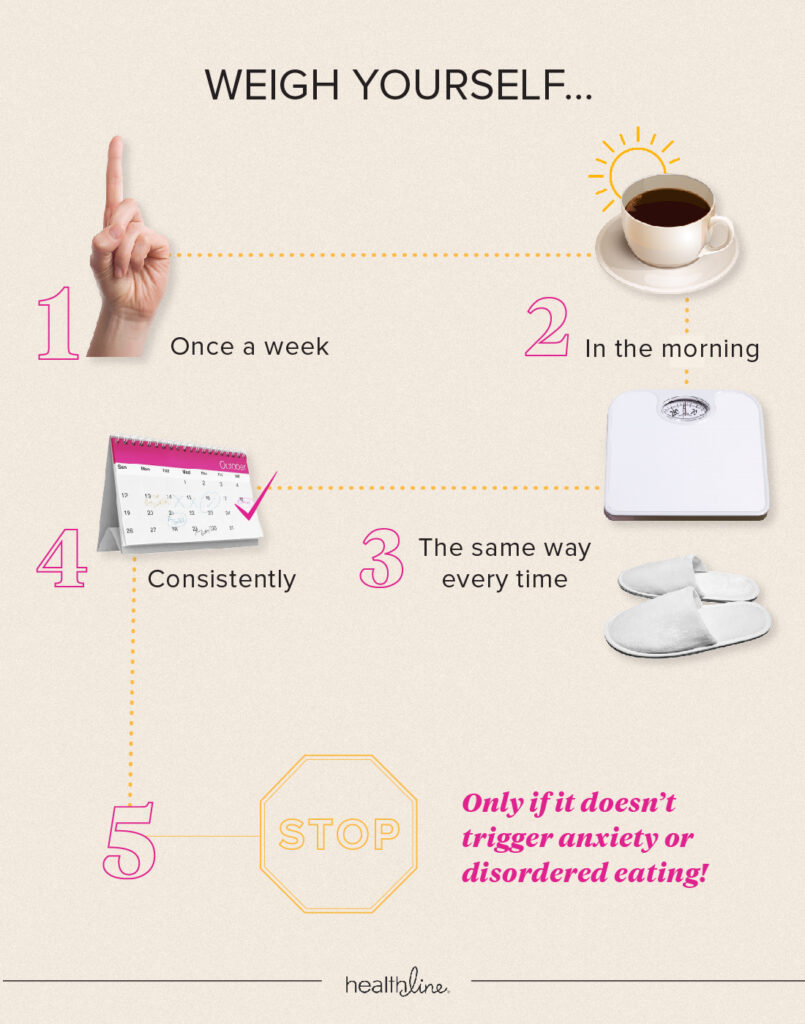
Why is it important to weigh yourself?
Monitoring weight fluctuations
Weighing yourself regularly is important for monitoring weight fluctuations. By stepping on the scale consistently, you can keep track of any changes in your weight and identify trends. This allows you to make informed adjustments to your diet and exercise routine if necessary. For example, if you notice a sudden increase in weight, it could be an indication of water retention or overeating. On the other hand, a consistent decrease in weight may suggest progress towards your weight loss goals.
Tracking progress towards weight loss goals
Weighing yourself regularly helps you track your progress towards your weight loss goals. Whether you’re aiming to lose a few pounds or have a significant amount of weight to lose, keeping track of your weight is an effective way to measure your success. By weighing yourself consistently, you can see how your efforts are paying off and make adjustments to your strategies if needed. It can be motivating to see the numbers on the scale moving in the right direction and can help you stay focused on your weight loss journey.
Identifying potential health issues
Regularly weighing yourself can also help you identify potential health issues. Sudden and unexplained weight gain or loss could be a sign of an underlying medical condition that requires attention. By keeping a close eye on your weight, you can detect any significant changes and consult with a healthcare professional if necessary. Catching these issues early on can lead to prompt treatment and better health outcomes.
Factors to consider before determining the frequency of weighing
Weight loss goals
Before determining how often you should weigh yourself, it’s important to consider your weight loss goals. If you have a significant amount of weight to lose or are actively working towards a specific target, more frequent weigh-ins may be beneficial to track your progress closely. On the other hand, if your goals are more focused on weight maintenance or overall well-being, a less frequent weighing schedule may be suitable.
Body composition
Another factor to consider is your body composition. If you are actively engaged in strength training or other forms of exercise that build muscle, the number on the scale may not accurately reflect your progress. Muscle weighs more than fat, so even if you’re losing fat and gaining muscle, it may appear as if your weight is not changing. In such cases, relying solely on the scale may not provide an accurate representation of your body’s changes. Consider incorporating other methods of tracking progress, such as measuring body measurements or assessing how your clothing fits.
Emotional well-being
It’s essential to consider your emotional well-being when determining the frequency of weighing yourself. For some individuals, stepping on the scale too frequently can lead to anxiety, stress, or a negative self-image. If weighing yourself becomes a source of distress or affects your mental health, it may be beneficial to reduce the frequency of weigh-ins or adopt a different method of tracking progress. Remember, your mental well-being is just as important as your physical health.
Time and convenience
Finally, consider your schedule and convenience when deciding how often to weigh yourself. Weighing yourself daily may be time-consuming and may not fit into your daily routine. On the other hand, weighing yourself too infrequently may make it difficult to stay on top of your progress. Choosing a weighing frequency that is realistic and convenient for you will make it easier to incorporate it into your lifestyle and stick to your tracking routine.
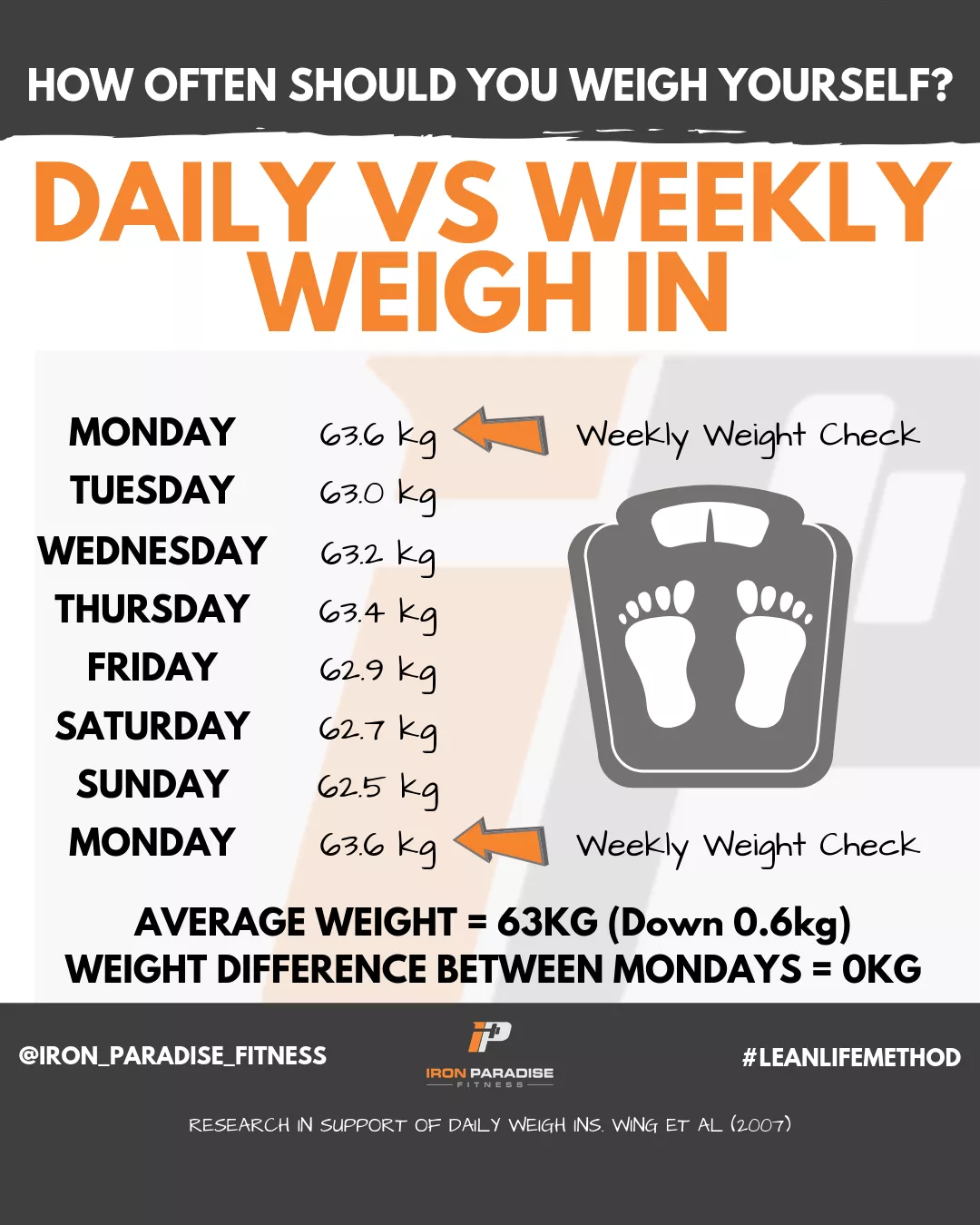
Weighing daily: Pros and Cons
Pros: Accountability and quick feedback
Weighing yourself daily offers a high level of accountability and provides quick feedback on your progress. It keeps you aware of your weight fluctuations and allows you to make immediate adjustments to your diet and exercise habits. Daily weigh-ins can help you stay motivated and on track with your weight loss goals, as you will have a clear picture of how your efforts are paying off.
Cons: Fluctuations and potential obsession
One of the downsides of weighing yourself daily is that weight can fluctuate significantly due to factors like water retention, hormonal changes, or even the food you ate the night before. This fluctuation can be discouraging and may lead to frustration or obsession with the number on the scale. It’s important to remember that weight is not the sole indicator of progress, and focusing too much on daily fluctuations can be counterproductive to your overall well-being.
Weighing weekly: Pros and Cons
Pros: More stable data and less stress
Weighing yourself weekly can provide more stable data compared to daily weigh-ins. It allows for a better understanding of your average weight over a week rather than being influenced by daily fluctuations. Weighing yourself weekly also reduces the stress and pressure associated with daily weigh-ins. It gives you a more relaxed approach to tracking your progress while still providing valuable feedback.
Cons: Slower progress tracking
The downside of weighing yourself weekly is that progress tracking may be slower. With fewer data points, it may take longer to notice significant changes in your weight. This could potentially affect your motivation, especially if you prefer more immediate feedback on your efforts.
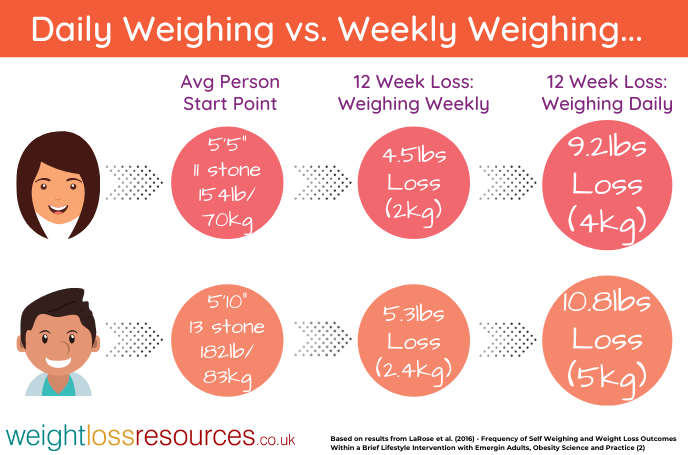
Weighing monthly: Pros and Cons
Pros: Focus on long-term progress
Weighing yourself monthly allows you to focus on long-term progress rather than getting caught up in daily or weekly fluctuations. It provides a broader perspective on your weight changes and trends over time. If you tend to be easily discouraged by short-term setbacks, weighing yourself monthly may be beneficial for maintaining a positive mindset and staying focused on the bigger picture.
Cons: Limited feedback and potential weight gain unnoticed
One of the drawbacks of weighing yourself monthly is that you have limited feedback on your progress. If you are actively working towards weight loss goals, a month can pass before you realize any potential weight gain or lack of progress. This delayed feedback may make it more challenging to make timely adjustments to your routine, potentially hindering your overall progress.
Weighing quarterly: Pros and Cons
Pros: Emphasizes sustainable progress
Weighing yourself quarterly places emphasis on sustainable progress rather than the short-term results. By spacing out your weigh-ins, you give yourself ample time to make meaningful changes in your lifestyle and habits. This approach encourages a long-lasting and healthier relationship with weight management by focusing on gradual, sustainable changes.
Cons: Limited accountability and feedback
The downside of weighing yourself quarterly is that you have limited accountability and less frequent feedback on your progress. It may become easier to lose track of your goals or veer off track without a regular reminder of your weight. This approach requires a high level of self-discipline and self-motivation to stay committed to your weight management journey.
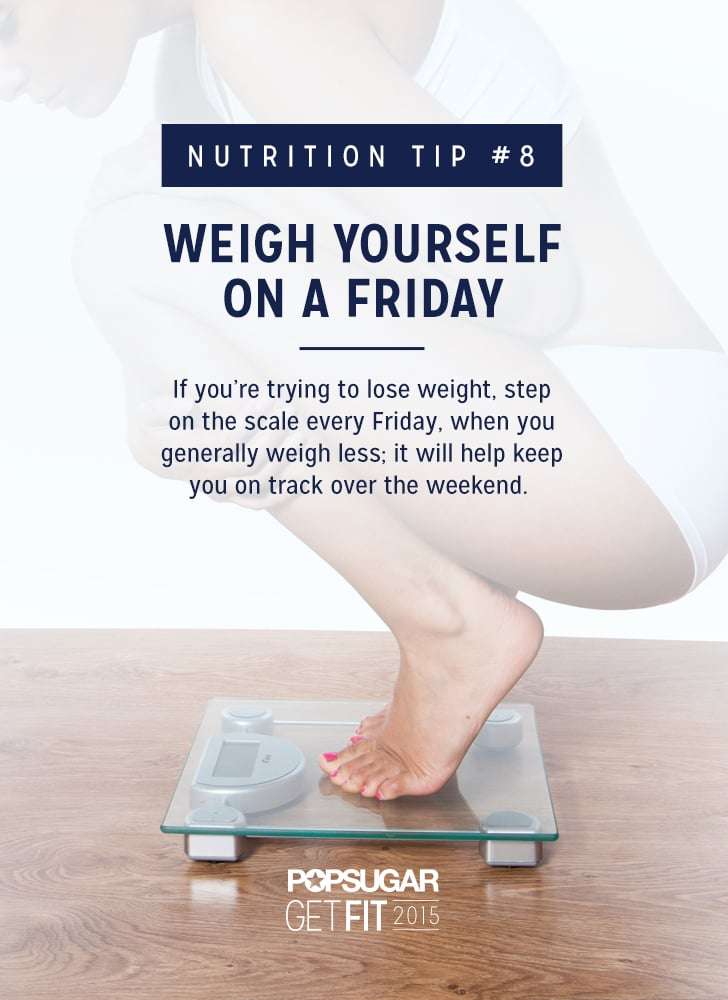
Setting a routine for weighing
Choosing a consistent time of day
When weighing yourself, it’s important to choose a consistent time of day. Weight can fluctuate throughout the day, so weighing yourself at the same time each day will provide more accurate and comparable measurements. Many individuals find that weighing themselves in the morning, after using the restroom and before eating or drinking, works best for consistency.
Wearing similar clothing for consistency
To ensure consistency in your weigh-ins, wearing similar clothing each time can help avoid any variations caused by the weight of your clothes. Opt for lightweight and minimal clothing, such as underwear or a bathing suit, to minimize any potential discrepancies in your measurements.
Using the same scale
Using the same scale for each weigh-in is essential for accurate tracking. Different scales may provide slightly different readings, which can affect your progress tracking. Find a reliable and accurate scale and use it consistently for all your measurements.
Recording the data
To effectively track your progress, it’s important to record your weight measurements regularly. Whether you choose to use a smartphone app, a written journal, or a spreadsheet, keeping a record of your measurements will allow you to visualize your progress over time. This data can help you adjust your strategies, celebrate milestones, and stay motivated on your weight management journey.
Knowing when to adjust the weighing frequency
Reaching weight loss goals
Once you have reached your weight loss goals, it may be appropriate to adjust the frequency of weighing yourself. At this point, the focus may shift towards weight maintenance rather than actively tracking progress. Weighing yourself less frequently, such as monthly or quarterly, can help you monitor any changes and prevent significant weight gain.
Plateaus and stalls
If you find yourself experiencing a weight loss plateau or a stall where your progress has come to a halt, it may be helpful to adjust your weighing frequency. Increasing the frequency of weigh-ins, such as switching from monthly to weekly, can provide more immediate feedback and help you make necessary adjustments to kickstart your progress again.
Significant lifestyle changes
Significant lifestyle changes, such as starting a new exercise regimen or adopting a different dietary approach, may call for a change in weighing frequency. These changes can have a significant impact on your weight, and monitoring more frequently can help you assess how your body is responding to these adjustments.
Health concerns
Lastly, if you have any health concerns or receive advice from a healthcare professional, it’s important to consider adjusting your weighing frequency accordingly. Certain medications or conditions may influence your weight, and your healthcare provider can guide you in determining the appropriate weighing schedule.
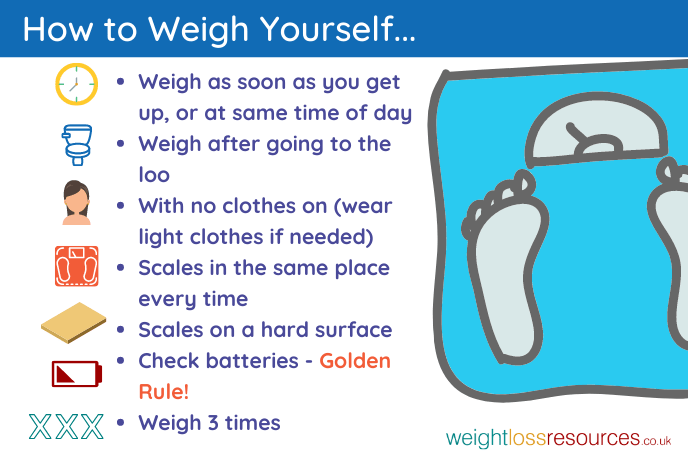
Guidelines for a healthy approach to weighing
Focus on overall wellness, not just numbers
When weighing yourself, it’s crucial to remember that weight is just one aspect of overall wellness. It’s important to focus on other factors such as body composition, energy levels, and overall well-being. Instead of fixating solely on the numbers on the scale, pay attention to how you feel, your physical strength, and your overall mood and mental health.
Be aware of emotional responses
Weighing yourself can sometimes trigger emotional responses, both positive and negative. It’s important to be aware of how you react to the numbers on the scale and how it may affect your self-esteem or body image. If weighing yourself becomes a source of stress, anxiety, or negative emotions, it may be necessary to take a step back or adopt a different method of progress tracking.
Interpreting trends, not individual measurements
Instead of focusing on individual measurements, it’s more beneficial to look at trends over time. Our weight naturally fluctuates due to various factors, and fixating on specific readings can lead to unnecessary frustration and confusion. By looking at the overall trajectory, you can gain a better understanding of your progress and make more informed decisions.
Consulting with a healthcare professional
If you have any concerns or questions about weighing yourself or your weight management journey, it’s always wise to consult with a healthcare professional. They can provide personalized advice, guidance, and support based on your specific needs and circumstances. A healthcare professional can help you determine the most appropriate weighing frequency and offer insight into other vital aspects of your overall health.
Conclusion
Weighing yourself is an important tool for monitoring weight fluctuations, tracking progress towards weight loss goals, and identifying potential health issues. However, determining the frequency of weighing should consider variables such as weight loss goals, body composition, emotional well-being, and time convenience. Whether you choose to weigh yourself daily, weekly, monthly, or quarterly, it’s essential to maintain a healthy approach by focusing on overall wellness, being aware of emotional responses, interpreting trends rather than individual measurements, and seeking guidance when needed. Remember, the number on the scale is just one piece of the puzzle, and your overall well-being should always be the primary focus.
